As a teacher, I often don’t always say the things I want to say. Most would interpret that negatively: “He doesn’t call kids jerks when he thinks they are.” That’s certainly the case, but for not so obvious reasons. Most obvious is the lack of professionalism such a pronouncement would exhibit, not to mention cruelty. More to the point, though, I don’t really experience that because I rarely — not never, but very, very rarely — hold such an opinion of a kid. They are, after all, kids. They’re still learning, still growing, and their impulse control and social skills are often simply not up to par because of a lack of maturity or a lack of consistent examples. I could count on one hand all the kids, over twenty years of teaching, that I just didn’t like as people. I haven’t met such a kid in several years now.
What I had in mind is the flip side of that — as a teacher, I don’t always tell a kid when I’m absolutely in love with some part of his journey, some portion of her personality, some facet of his persistence, some element of her youthful excitement.
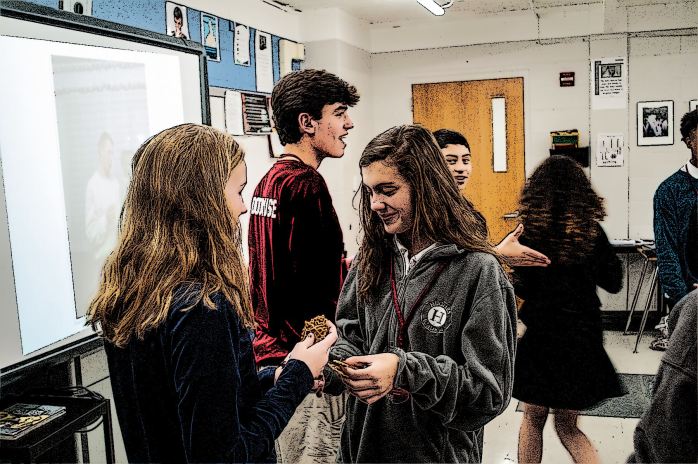
I certainly tell a lot of kids a lot of positive things. But those moments seem relatively few and far between.
Why don’t I say those things? Probably because of a sense of vulnerability that seems to include for myself. Possibly because of a worry of how it might be taken. Perhaps because of a lack of time.
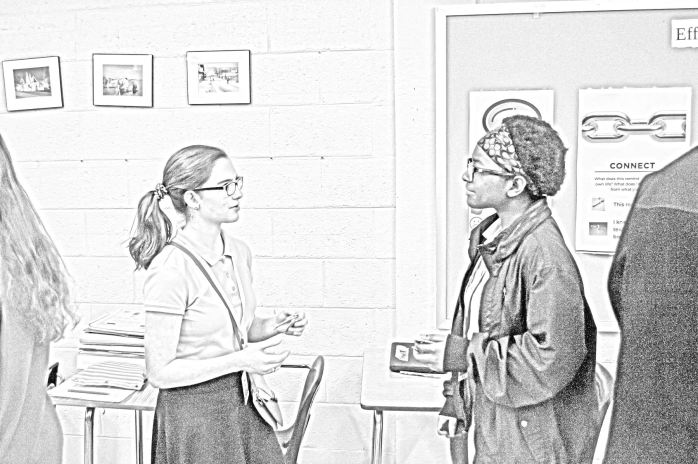
“Wouldn’t it be nice to have some sort of occasion, some sort of event, that seemed actually to encourage such things?” I thought. And thinking back to my seven years of teaching in Poland, I realized such an occasion exists, just not in American culture.
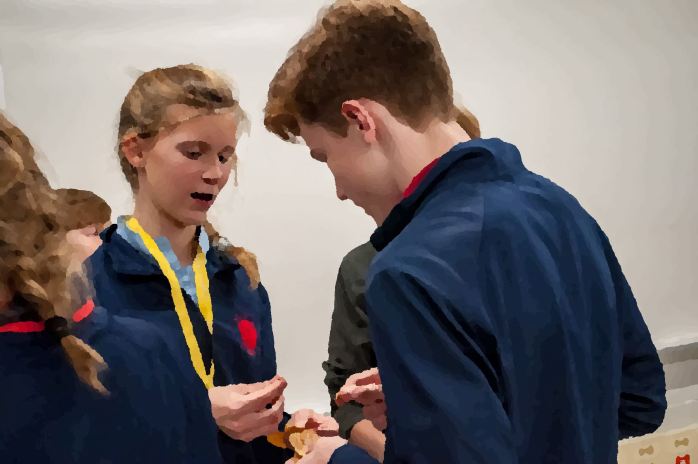
In Poland, though, a tradition that invites such honesty has existed for centuries: sharing the opłatek.
I’ve done it for several years now, explaining it to the kids with a slide show and a bit of explanation about Christmas in Poland and substituting pizzelle from Aldi for the actual wafer.
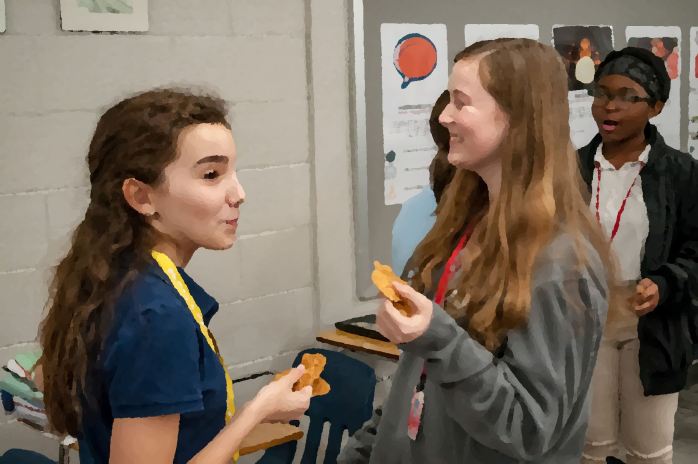
This year, instead of just taking pictures, I participated. I always had a pizzelle in hand, but I waited for students to come to me; this year, I went to them. And told the shy kids who were coming out of their shell how exciting it was to watch them, to hear them assert themselves, to see the faces of other students as they share their often-striking ideas. I told the troubled students how much growth I’d already seen, how much I was rooting for them, how much it irritated me when I had to ask them to leave the classroom because their disruptive decisions were robbing others of opportunities. I told the kids who had started doing their work after a quarter, perhaps a quarter and a half of apathy, how proud I was of them.
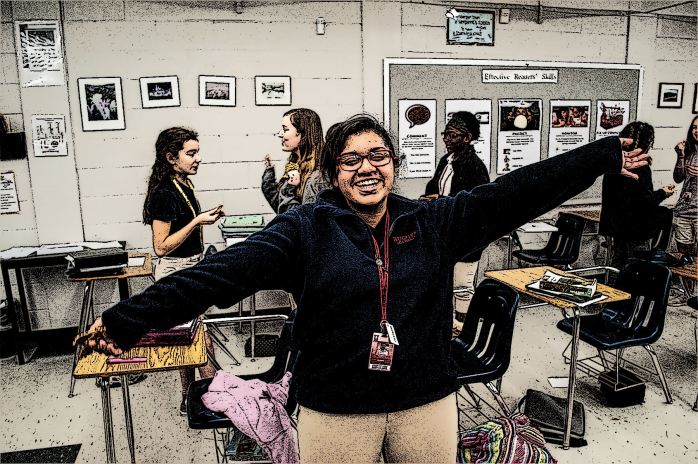
And in return today, I got the loveliest Christmas card I have ever received from a student, thanking me for my words, thanking me for my encouragement and motivation, and assuring me that she was my favorite student.
Perhaps, but she’s tied with 120 others this year.

I love this idea – proactively finding a way to encourage and uplift kids who need it, especially the ones who have been overlooked. I wish you’d told us more about the actual tradition; it wasn’t clear to me what, exactly, it entailed. It sounds fascinating.
Thanks for the comment. Sometimes, I think I might be among the only positive force in some kids’ lives that day. As for describing the tradition itself, I think you’re right considering the broader audience. I usually write only for myself.
What a lovely tradition you brought with you, and so needed. We’re so good at talking about what we don’t like about people, and we forget about all the things that make them wonderful. I needed this today. Thank you.
It is indeed always easier to criticize. It doesn’t open us up; it doesn’t show our vulnerabilities. Or does it?
How rewarding! Thank you for teaching. Such an important job.
Thank you for your kind words.
It sounds like you might be teaching middle school or high school. If so, I especially applaud you taking the time to do this. Relationships are so important and by cementing yours with students, you may have made all the difference.
I find that relationships, more than anything else, are key to working with eighth graders. Twelve years ago, when I began teaching eighth grade, I would have been surprised to know I feel this way now, but I wouldn’t want to teach any other grade.